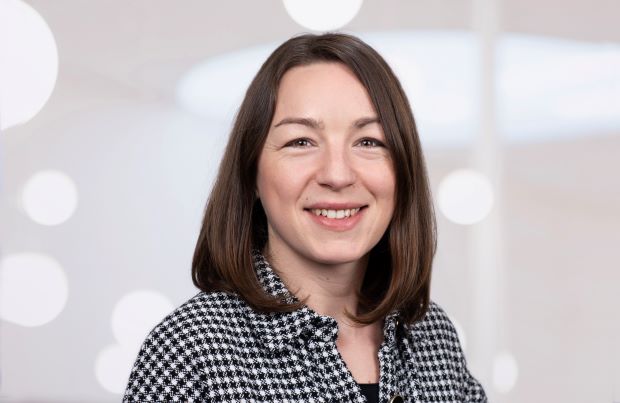Why do some people pick up new languages with ease, while others struggle? In the field of Second Language Acquisition (SLA), this is often attributed to ‘aptitude’ – a person’s natural ability to learn a foreign language, usually thought of as a purely cognitive skill. But what if there’s more to the story? Lani Freeborn, PhD candidate at the University of Amsterdam, is exploring a broader view of aptitude, looking beyond just brainpower to uncover how emotions, motivation, and personal factors also shape language learning success.

Lani’s journey with foreign language learning research began in the practical world of language teaching. Before the transition into academia, she spent years teaching English as a foreign language across different countries, from Portugal to China. While teaching English abroad, she was also pursuing a Master’s in Applied Linguistics. This gave her the chance to see the immediate connections between theoretical frameworks and practical language teaching – a dual perspective that would ultimately inform her later research. “I’d have my classes online in the morning and do my studying and learn about all these different theories of language learning. And then in the afternoon I’d go to teach,” she recalled. “It was quite nice to do the MA and teach at the same time.”
Starting a PhD in the Netherlands
Moving to Amsterdam for a PhD was part of a broader goal to return to Europe after years of living overseas. The Netherlands, in particular, was appealing for both personal and professional reasons. On the one hand, it is close to her home country of England, while on the other, it houses a research community engaged in complex systems theory – a framework that would become central to her work. Complex systems theory explores the interplay of different variables and components within a system. This concept is particularly important for the study of SLA, where traditional views often narrow in on aptitude as a purely cognitive construct. Lani’s PhD project seeks to challenge this by broadening the concept of aptitude to include not just cognitive abilities but also affective factors like motivation, anxiety, and attitudes. “I want to take a much more holistic view of aptitude and consider not only cognitive abilities, but also affective and motivational processes,” she explained. This perspective is closely aligned with complex systems theory, which emphasizes the importance of looking at how different components of a system interact with each other in complex ways.
Adapting to PhD Life During the Pandemic
Like many others who started their PhDs during the COVID-19 pandemic, the first year of Lani’s PhD presented unique challenges. Moving to the Netherlands in the summer of 2020, she had only a few weeks of normalcy before the country entered lockdown. With shops closed and curfews imposed, life in a new city became somewhat isolating. However, this period of seclusion also led to a deep dive into research. “I feel like that time was actually when the basis of my project took hold because of this isolation,” she shared. “I was reading all about different theories and methods… spending day after day just reading and having no interruptions. Kind of good and bad at the same time.” The isolation, though difficult, allowed for focused research. It was during this time that Lani began developing the foundations of their PhD project, which would go on to investigate aptitude in SLA from a complex systems perspective.
Understanding Language Learning Through Network Analysis
To deal with all this complexity, Lani uses network analysis: a data-driven method that is gaining traction in fields like psychology. In essence, network analysis allows researchers to examine the relationships between different components within a system. Unlike traditional models, which often predefine the direction of relationships, network analysis allows for a more exploratory approach. “In network models, the idea is that it’s the interactions between the components of the system that actually form the construct,” she explained. “It’s being used a lot in psychology to model constructs like intelligence and personality from a complexity perspective.” Applying this method to SLA allows Lani to model aptitude as a dynamic system, exploring how cognitive abilities interact with variables like motivation and anxiety. She has conducted a longitudinal study with 400 learners of Dutch across the Netherlands, measuring cognitive abilities, personality traits, and language learning outcomes at the start and end of their language courses. By using network analysis to model these relationships, she hopes to gain deeper insights into what factors most influence language learning outcomes.
Bridging the Gap Between Theory and Practice
One of the most compelling aspects of Lani’s work is the desire to bring the findings of her research back into practical language teaching. In particular, she is interested in the idea of “aptitude-treatment interaction.” This theory suggests that if teachers can identify learners’ aptitude profiles, they can tailor instruction to better suit individual needs. This approach could have significant implications for language teaching. By considering not just cognitive abilities but also personality traits, motivation levels, and emotional factors, teachers could develop more personalized and effective teaching strategies. Ultimately, Lani sees her work as a full-circle journey: from teaching languages in a classroom to conducting cutting-edge research that could one day influence how languages are taught. She has not ruled out a return to teaching, potentially combining academic research with hands-on instruction in the future.
Final thoughts: Advice for Language Learners
Many people who struggled with language learning as children believe they will never excel at it. However, Lani stresses that our learning abilities may change throughout our lifespan, challenging the common misconception that aptitude is a fixed trait. “People often say ‘I’m no good at learning languages,’ because of how they did in school. But actually, in real life, people learn languages in very different ways in non-academic settings and are very successful.” When asked what advice she would give to people who aspire to learn a new language, her answer is short but powerful: “Just don’t give up. Keep going.”